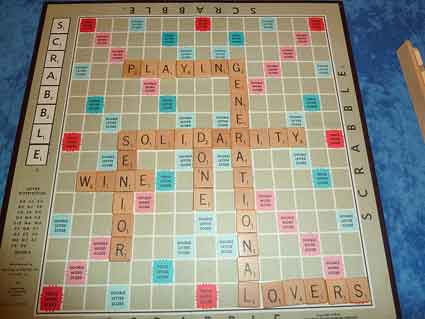
TANT (Third Age and New Technologies Grundtvig ) GRUNDTVIG project
Partners
University of the Third Age (Poland) http://www.utw.uni.wroc.pl (coordinator)
Association E-SENIORS (France) http://www.e-seniors.asso.fr
Asociación de Alumnos "Ripense" de la Escuela Oficial de idiomas en Rivas. ( Spain )
Hatay bakim rehabilatosyon ve aile danisma merkezi (Turkey)
Summary
The goal of the partnership is to organize experimental computer courses in ICT or in English (depends on the participating organization) for seniors in the 2011/2012 academic year. The program of the course will consist of learning basic computer skills (from turning the computer on and using Windows up to using the possibilities of the internet such as web portals, e-mail, etc.) or of basic English. Our goal is that elderly students, who do not know how to use computers or who do not speak English well enough to communicate, could be able to achieve quite good computer or language skills, so that they would be able to continue learning without a tutor and break psychological barriers, with the help of younger instructors. When the courses are completed, we will do research on the senior education process and will organize a focus group in each organization and a final conference in Wroclaw for all the tutors, who ran courses using the formerly established teaching methods and another focus group for the seniors, so they can share their impressions with us. The information acquired during the research will be subsequently compiled by us and published as a course book or methodological files.
The project will have an intergenerational dimension as well, because instructors and researchers will be from the younger generation.
During the meetings we intend to learn much more about the host organization, the culture of the country and the city visited.
During the project we organize experimental computer courses for seniors: few organizations will teach ICT for seniors, others English courses assisted with ICT. We will testing new methods of learning (orientation on effects), besides we are interesting in exploration of culture partner organizations (orientation on process).
First meeting in Wroclaw february 2011
Presentations
Creating an Internet profile as a technique to aid the education of senior citizens
Google Wave application software as an aid of senior learning
Photos from the Wroclaw meeting (by Monique / France) :
 |
| Wroclaw_feb2011_TANT |
Photos and video by Alexsander/Poland :
http://www.youtube.com/watch?v=2-UyHsdiXfU
https://picasaweb.google.com/aleksander.kobylarek/TANT1?feat=directlink#
Second meeting in Paris :
Third meeting in Spain
Fourth meeting in Hatay
Fifth meeting in Wroclaw
| OUTPUT |  |
English conversation in Paris (PPT presentation)
Questionnaire : feedback from students
White book about experience of English conversation worshop
Motivation
- the need for new methods of learning and teaching for seniors,
-the need for learning about other cultures,
-the need to encourage elderly people (at risk of technological marginalization) to activate and motivate them to communicate via the internet in English
The project is needed for the establishing of new international contacts and elaborating new teaching methods in the wider international society
Objectives and strategy
The goal of the partnership is to organize computer and language courses (based on ICT) for seniors. by these means we want to achieve such aims as:
- teaching seniors skills necessary to use the modern communication media (internet, e-mail- it means from 0 level up to self study),
- preventing elderly people from social exclusion,
- engaging seniors in virtual communities,
- helping seniors in facing the everyday challenges of the information society,
- helping seniors in communicating their own culture in a common language and in learning of other European values
European added value
-comparing learning processes dependent on cultural factors
-meeting "living" cultures in everyday life situations
-establishing strong international contacts, which will be useful in other projects in the future
Impact
-exchange of ideas, thoughts, experience;
-learning about other European cultures;
-improving the use of English for communication of own culture;
-recognizing new methods of work with seniors,
-finding new methods of learning for adults, especially senior citizens,